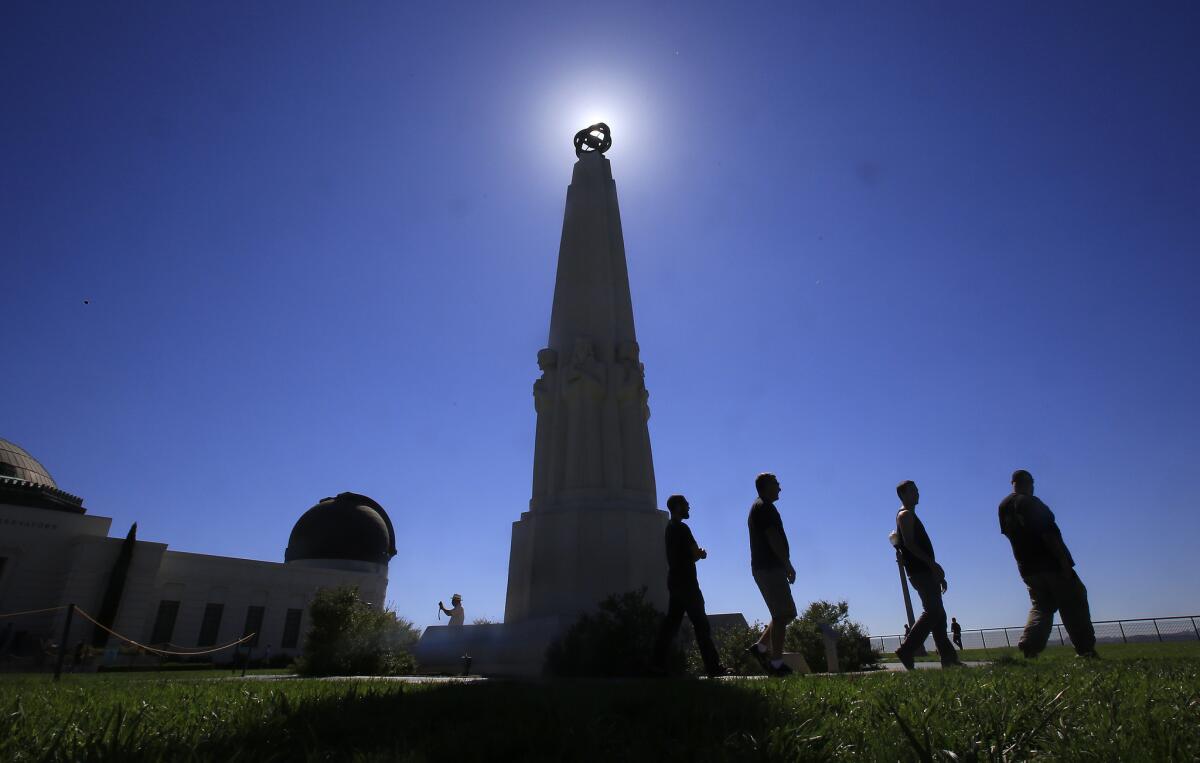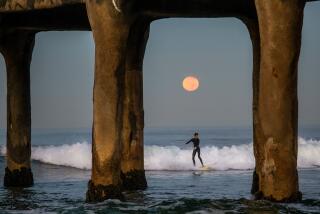See the supermoon lunar eclipse Sunday night at Griffith Observatory - set to live classical music

Telescopes will be in place Sunday at the Griffith Observatory in Griffith Park for those who want a close-up of the supermoon lunar eclipse. The eclipse enters totality at 7:11 p.m.
- Share via
Some call it a supermoon lunar eclipse, others call it a super blood moon eclipse. Either way, Griffith Observatory in Los Angeles will celebrate the celestial trifecta Sunday with live classical music and lots of skygazing.
If you miss the moontastic event, the next one won’t happen until 2033.
Here’s what will happen Sunday evening in the sky, from wherever you want to watch (the darker the location, the better):
– First, the moon will be full.
– Then the moon will appear to be large, a supermoon, because it’s in what’s called “lunar perigee,” meaning the moon will be at its closest point to the Earth during its orbit.
– This all coincides with a lunar eclipse when the Earth blocks the sun’s light from hitting the moon. It may have a red or coppery appearance too, hence the “blood” moon moniker.
The moon will rise at 6:45 p.m. local time Sunday, and the eclipse will enter totality at 7:11 p.m.
Griffith Observatory in Griffith Park hosts a free Star Party starting at 2 p.m. Sunday when telescopes will be in place. Then from 6:30 to 9:45 p.m., pianist Ray Ushikubo will be playing Beethoven sonatas as part of the L.A. Philharmonic’s “Immortal Beethoven” program.
Visitors can peer through the telescopes on the observatory’s lawn or look up with the naked eye to see the total eclipse.
If you want a close-up view, you can watch the event unfold through the observatory’s Zeiss telescope via live-stream broadcast. Slooh Community Observatory also will be live-streaming the eclipse.
The last supermoon lunar eclipse occurred in 1982, one of just five such events in the last century, Space.com says.
ALSO
Griffith Observatory and Big Sur among ‘500 best places on the planet’ (Sorry, Hollywood sign!)
When it comes to controlling weight, not all fruits and vegetables are created equal
Why were some ancient galaxies so bright? Supercomputer probes mystery
More to Read
Sign up for The Wild
We’ll help you find the best places to hike, bike and run, as well as the perfect silent spots for meditation and yoga.
You may occasionally receive promotional content from the Los Angeles Times.







